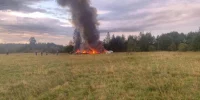Exploitation des mines d’or du Mali par Wagner : quelles conséquences géopolitiques ?
Depuis 2018 et son arrivée dans le Sahel via la Centrafrique, le groupe s'illustre par ses exactions. Loin de contribuer à la pacification de la région, le groupe mercenaire participe au chaos ambiant : trafics, criminalité, exécutions sommaires, désinformation, etc. Cette prédation aggrave l'instabilité de la région prise dans le maelstrom des conflits intercommunautaires et des trafics illégaux (minerais, migrants, stupéfiants, armes, etc.). Car c'est bien la soif d'or qui aiguise l'appétit des mercenaires.
Si le groupe Wagner est une extension du Kremlin, il n'en reste pas moins une société militaire privée (SMP) répondant à des impératifs de rentabilité. L'exploitation de l'or fait partie de son modèle économique.… Seguir leyendo »














